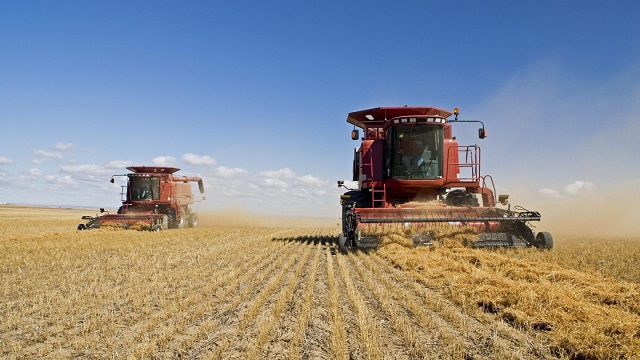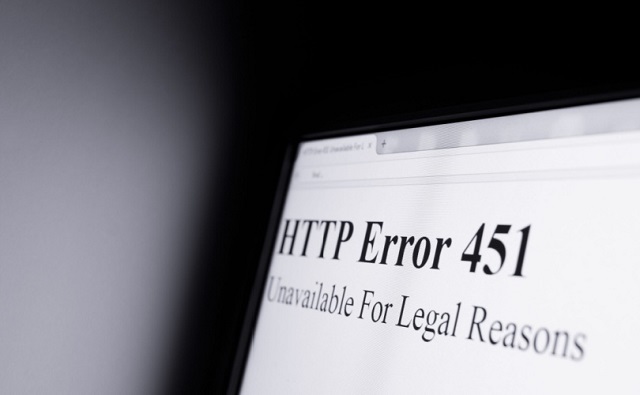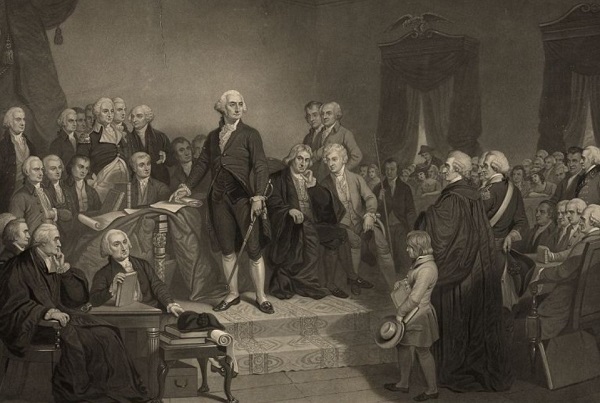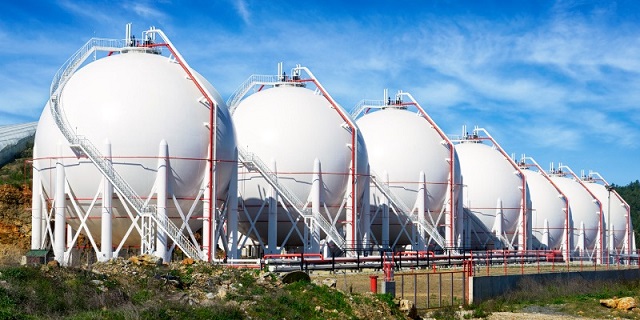Agriculture
Cannabis legalization voted Canadian Press’s Business Story of the Year

TORONTO — Canada’s trailblazing move to legalize cannabis for recreational use, which sparked an entirely new industry and had wide-ranging implications for nearly every facet of society, has been voted The Canadian Press Business News Story of the Year.
The term “disruption” in business has become so overused that it has become an empty cliche, but it is warranted in the case of pot legalization, said Andrew Meeson, deputy business editor at the Toronto Star.
“It’s hard to think of an area in Canada that hasn’t been shaken up: not just commerce (from criminal act to booming startup to takeover target in the blink of an eye), but also policing, health care, justice, politics. Even culture (just ask Tommy Chong),” he said.
“If that doesn’t make it the business story of the year, I don’t know what would.”
In an annual poll of the country’s newsrooms conducted by The Canadian Press, business editors and reporters across the country chose cannabis legalization in a landslide, with 60 per cent of the votes cast.
The terse negotiations between Canada, U.S. and Mexico towards a new North American Free Trade Agreement was a distant second with 30 per cent of votes.
Canada’s pipeline conundrum, with the Trans Mountain pipeline expansion now in limbo after a court overturned its regulatory approval in August and a U.S. court throwing out the Keystone XL pipeline’s presidential permit in November, came in third out of eight possible candidates with 10 per cent of the vote.
“Pipelines would have won, hands down if it weren’t for the creation of an entirely new industry in Canada,” said David Blair, a business columnist with CBC Radio. “Rarely, if ever, do journalists get to cover the opening of a new market, especially one that is as controversial as cannabis.”
The world was watching when the country made history with the first legal sale of non-medicinal pot just after midnight on Oct. 17 in Newfoundland and Labrador, due to its time zone being 30 minutes ahead of the rest of Canada.
It marked the beginning of what the New York Times dubbed Canada’s “national experiment,” and the culmination of months, if not years, of preparation by legislators and law enforcement officials at all levels and in each province, territory, and municipality.
While Oct. 17 represented an extension from the initial target set for July, and licensed producers ramped up production in the lead-up, long lines of customers were met with widespread product shortages online and in the relatively few bricks-and-mortar stores that were ready on day one.
Still, many Canadians were simply elated to be able to buy government-sanctioned pot after nearly 100 years of prohibition.
“My new dealer is the prime minister!” said Canadian fiddler and pop star Ashley MacIsaac, who in 2001 had been arrested for possession in Saskatchewan.
But cannabis mania had been bubbling for months before legalization, with retail investors rushing to invest in the latest pot company to list its stock. Cannabis company valuations in the lead up to Oct. 17 soared and some of the banks’ online direct investment platforms were bombarded with unprecedented trading volumes.
At one point producer Tilray Inc.’s stock on the Nasdaq exchange in September hit a peak of US$300, giving the Nanaimo, B.C.-company a market value higher than established Canadian conglomerates such as Loblaw Companies Ltd. and Rogers Communications Inc.
Pot will be cited for years to come as many Canadians’ first experiences with investing, said Pete Evans, senior business writer for CBC News.
“Cannabis mania deserves some credit — and maybe blame — for ushering an entire new generation of primarily young people into making their first stock market investments ever,” he said.
A flurry of merger and acquisition activity in the sector, even before legalization, fuelled investor interest as well.
Aurora Cannabis Inc. was on an acquisition spree this year, buying rival CanniMed Therapeutics for $1.1 billion after a terse takeover battle and later MedReleaf for $3.2 billion.
Alcohol giant Constellation Brands in August announced it was upping its investment in pot producer Canopy Growth Corp. — in the largest strategic investment in the pot space to date — to increase its ownership stake to 38 per cent. The Corona beer-producer also received warrants that, if exercised, would up its stake to more than 50 per cent.
And earlier this month, Big Tobacco came calling, as the number of countries that legalized cannabis for medical use continues to grow.
Marlboro maker Altria Group Inc. said it planned to invest $2.4 billion in pot producer Cronos Group Inc. for 45-per-cent ownership, with an option to increase that stake in the future.
The Altria-Cronos deal gave the overall sector a slight lift, but pot stocks have largely come off their highs after legalization as reality set in and concerns mounted about lofty valuations.
Canadian marijuana companies have found themselves in the crosshairs of short-sellers, as well.
Aphria Inc. earlier this month saw its stock value more than cut in half over three days after two short-sellers targeted the Leamington, Ont.-based cannabis producer with a raft of allegations, including that its recent international acquisitions were “largely worthless.” Aphria has called the allegations “inaccurate and misleading” and is confident in the deal in question, but has appointed an independent committee to review their claims.
Meanwhile, recreational pot supply shortages continue to linger. Several cannabis producers in part blamed supply chain issues for contributing to the shortage and have said they are aiming to increase their production, but it will likely take more time fresh product to hit the market.
Quebec’s cannabis corporation stores continue to be closed from Monday to Wednesday as a result. And in Ontario, where the only legal way for residents to buy adult-use pot is through the government-run online portal, the provincial government said it will hand out a limited number of retail licenses due to the shortages.
The Ontario government initially said it would not cap the number of licenses, but now says it will only be able to issue 25 licenses by April via a lottery system. This deals a blow to a slew of companies who have been putting down deposits to secure prime real estate locations in the country’s most populous province in anticipation of obtaining a license.
“Seemingly overnight, activity that always existed on the margins of society has come into the centre,” said Evans.
“It’s been fascinating to watch the growing pains that have ensued… It will be interesting to see in the coming months and years how and if the reality lives up to expectations for the industry.”
Armina Ligaya, The Canadian Press
Agriculture
Farming group accuses Canadian gov’t of trying to blame agriculture for ‘climate change’

From LifeSiteNews
Grain Farmers of Ontario chairman Jeff Harrison contends that the government’s goal of reducing emissions is not realistic and that the ‘vilification strategy’ is causing more consternation for farmers.
One of Canada’s largest farming groups has said the Liberal federal government of Prime Minister Justin Trudeau is directly going after farmers via a “vilification strategy” under the guise of “climate change” and that a recent Auditor General report proves this to be true.
Grain Farmers of Ontario chairman Jeff Harrison recently said that the Trudeau government’s request to farmers to reduce emissions is not realistic and that it only creates more issues for Canadian farmers.
“Painting this climate picture as the fault of agriculture, it vilifies farmers,” said Harrison, noting it’s a “vilification strategy” to pin the blame on farmers.
“It’s part of the added stress on farmers that they are expected to do the unachievable. They’re expected to solve a problem that they didn’t necessarily create,” he observed.
Harrison’s comments were made after a recent Auditor General report titled “Agriculture and Climate Change Mitigation” picked to pieces the Trudeau government’s voluntary 30 percent emission reduction target by 2030 through curbing fertilizer use for farmers.
The United Nations has declared a war on nitrogen, claiming its use must be slowed as it is “one of the most important pollution issues facing humans.”
However, nitrogen, which is found in fertilizers, makes up about 70 percent of Earth’s air and is essential for plants.
The Auditor General report noted that there is widespread mismanagement along with a lack of transparency from the federal programs. Notably, there was a lack of consultation with stakeholders in the farming industry, as well as farming associations, before the government put in place random fertilizer emission reduction targets.
Harrison noted that such reduction targets are “unachievable targets and unrealistic goals,” adding that such targets “p—– me off, to be honest.”
The war on farmers not unique to Canada
Farmers worldwide are facing increased pressure from governments and special interest groups linked to globalists organizations such as the World Economic Fourm to reduce fertilizer use. Indeed, as recently observed by Dr. Joseph Mercola with LifeSiteNews, the global push to get rid of farmers “from their land is being driven by NGOs, which are primarily funded by the government, making them government extensions.”
“The real agenda, however, may be traced back to the Club of Rome, a think tank that aligned with neo-malthusianism – the idea that an overly large population would decimate resources – and was intending to implement a global depopulation agenda,” Mercola wrote.
“Once the farmers are pushed out, globalists suggest eating bugs will protect the planet by eliminating the need for livestock, cutting down on agricultural land use and protecting the environment. The U.N.’s Food and Agriculture Organization also encourages the consumption of insects and insect-based foods, and the momentum to get farmers off their land is continuing to gain steam.”
Trudeau’s government is trying to force net-zero regulations on all Canadian provinces, notably on electricity generation, as early as 2035. The provinces of Alberta and Saskatchewan are adamantly opposed to Trudeau’s 2035 goals.
The Trudeau government’s current environmental goals, which are in lockstep with the United Nations’ 2030 Agenda for Sustainable Development, include phasing out coal-fired power plants, reducing fertilizer usage, and curbing natural gas use over the coming decades.
Pressure on farmers from Feds comes at same time they are dealing with higher suicide rates
When it comes to Canada’s farmers, they have already been under pressure with increased costs of fuel, not to mention all basic goods and items needed to run a farm, thanks to high inflation due in part to federal overspending.
More concerningly, increased pressures on farmers to curtail fertilizer use, and thus be faced with lower yields, come at the same time that recent studies show suicidal thoughts among farmers at extremely elevated levels.
The 2022 study from Ontario’s University of Guelph found nearly one-third of farmers have “had thoughts of suicide in the last 12 months.” The numbers are more than two times above the general population of Canada.
According to the study, about three-quarters of participating farmers experience “moderate to high-stress and half experience anxiety or depression.”
Adding to their stress, on April 1, Canada’s carbon tax, which was introduced by the government of Trudeau in 2019, increased from $65 to $85 per tonne despite seven of 10 provincial premiers objecting to the increase, and 70% of Canadians saying they are against it.
Trudeau has remained adamant that he will not pause the hikes.
He has pitched his carbon tax as the best way to reduce so-called carbon emissions. However, the tax has added extra financial burdens on households despite hundreds of dollars of rebates per family.
To reach Trudeau’s goal of net zero by 2050, the carbon tax would have to balloon to $350 per tonne.
The reduction and eventual elimination of the use of so-called “fossil fuels” and a transition to unreliable “green” energy has been pushed by the World Economic Forum (WEF) – the globalist group behind the socialist “Great Reset” agenda in which Trudeau and some of his cabinet are involved.
Agriculture
Bill C-282, now in the Senate, risks holding back other economic sectors and further burdening consumers

From the Frontier Centre for Public Policy
Bill C-282 currently sits in the Canadian Senate and stands on the precipice of becoming law in a matter of weeks. Essentially, this bill seeks to bestow immunity upon supply management from any potential future trade negotiations without offering increased market access to potential trade partners.
In simpler terms, it risks holding all other economic sectors hostage solely to safeguard the interests of a small, privileged group of farmers. This is far from an optimal scenario, and the implications of this bill spell bad news for Canadians.
Supply management, which governs poultry, egg, and dairy production in Canada, has traditionally enabled us to fulfill our domestic needs. Under this system, farmers are allocated government-sanctioned quotas to produce food for the nation. At the same time, high tariffs are imposed on imports of items such as chicken, butter, yogurt, cheese, milk, and eggs. This model has been in place for over five decades, ostensibly to shield family farms from economic volatility.
However, despite the implementation of supply management, Canada has witnessed a comparable decline in the number of farms as the United States, where a national supply management scheme does not exist. Supply management has failed to preserve much of anything beyond enriching select agricultural sectors.
For instance, dairy farmers now possess quotas valued at over $25 billion while concurrently burdening dairy processors with the highest-priced industrial milk in the Western world. Recent data indicates a significant surge in prices at the grocery store, with yogurt prices alone soaring by over 30 percent since December 2023. This escalation is increasingly straining the budgets of many consumers.
It’s evident to those knowledgeable about the situation that the emergence of Bill C-282 should come as no surprise. Proponents of supply management exert considerable influence over politicians across party lines, compelling them to support this bill to safeguard the interests of less than one percent of our economy, much to the ignorance of most Canadians. In the last federal budget, the dairy industry alone received over $300 million in research funds, funds that arguably exceed their actual needs.
While Canada’s agricultural sector accounts for approximately seven percent of our GDP, supply-managed industries represent only a small fraction of that figure. Supply-managed farms represent about five percent of all farms in Canada. Forging trade agreements with key partners such as India, China, and the United Kingdom is imperative not only for sectors like automotive, pharmaceuticals, and biotechnology but for the vast majority of farms in livestock and grains to thrive and contribute to global welfare and prosperity. It is essential to recognize that Canada has much more to offer than merely self-sufficiency in food production.
Over time, the marketing boards overseeing quotas for farmers have amassed significant power and have proven themselves politically aggressive. They vehemently oppose any challenges to the existing system, targeting politicians, academics, and groups advocating for reform or abolition. Despite occasional resistance from MPs and Senators, no major political party has dared to question the disproportionate protection afforded to one sector over others. Strengthening our supply-managed sectors necessitates embracing competition, which can only serve to enhance their resilience and competitiveness.
A recent example of the consequences of protectionism is the United Kingdom’s decision to walk away from trade negotiations with Canada due to disagreements over access to our dairy market. Not only do many Canadians appreciate the quality of British cheese, but increased competition in the dairy section would also help drive prices down, a welcome relief given current economic challenges.
In the past decade, Canada has ratified trade agreements such as CUSMA, CETA, and CPTPP, all of which entailed breaches in our supply management regime. Despite initial concerns from farmers, particularly regarding the impact on poultry, eggs, and dairy, these sectors have fared well. A dairy farm in Ontario recently sold for a staggering $21.5 million in Oxford County. Claims of losses resulting from increased market access are often unfounded, as farmer boards simply adjust quotas when producers exit the industry.
In essence, Bill C-282 represents a misguided initiative driven by farmer boards capitalizing on the ignorance of urban residents and politicians regarding rural realities. Embracing further protectionism will not only harm consumers yearning for more competition at the grocery store but also impede the growth opportunities of various agricultural sectors striving to compete globally and stifle the expansion prospects of non-agricultural sectors seeking increased market access.
Dr. Sylvain Charlebois is senior director of the agri-food analytics lab and a professor in food distribution and policy at Dalhousie University.
-

 espionage18 hours ago
espionage18 hours agoThe Scientists Who Came in From the Cold: Canada’s National Microbiology Laboratory Scandal, Part I
-

 Energy15 hours ago
Energy15 hours agoTech giants’ self-made AI energy crisis
-

 Energy2 days ago
Energy2 days agoNew Report Reveals Just How Energy Rich America Really Is
-

 Automotive2 days ago
Automotive2 days agoBiden’s Climate Agenda Is Running Headfirst Into A Wall Of His Own Making
-

 Economy2 days ago
Economy2 days agoFeds spend $3 million to fly 182 politicians and bureaucrats to climate conference
-

 Addictions23 hours ago
Addictions23 hours agoLiberals shut down motion to disclose pharma payments for Trudeau’s ‘safe supply’ drug program
-

 National16 hours ago
National16 hours agoTrudeau’s internet censorship Bill C-11 will not be implemented until late 2025
-

 Frontier Centre for Public Policy12 hours ago
Frontier Centre for Public Policy12 hours agoThe PM as Leaf’s coach








